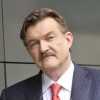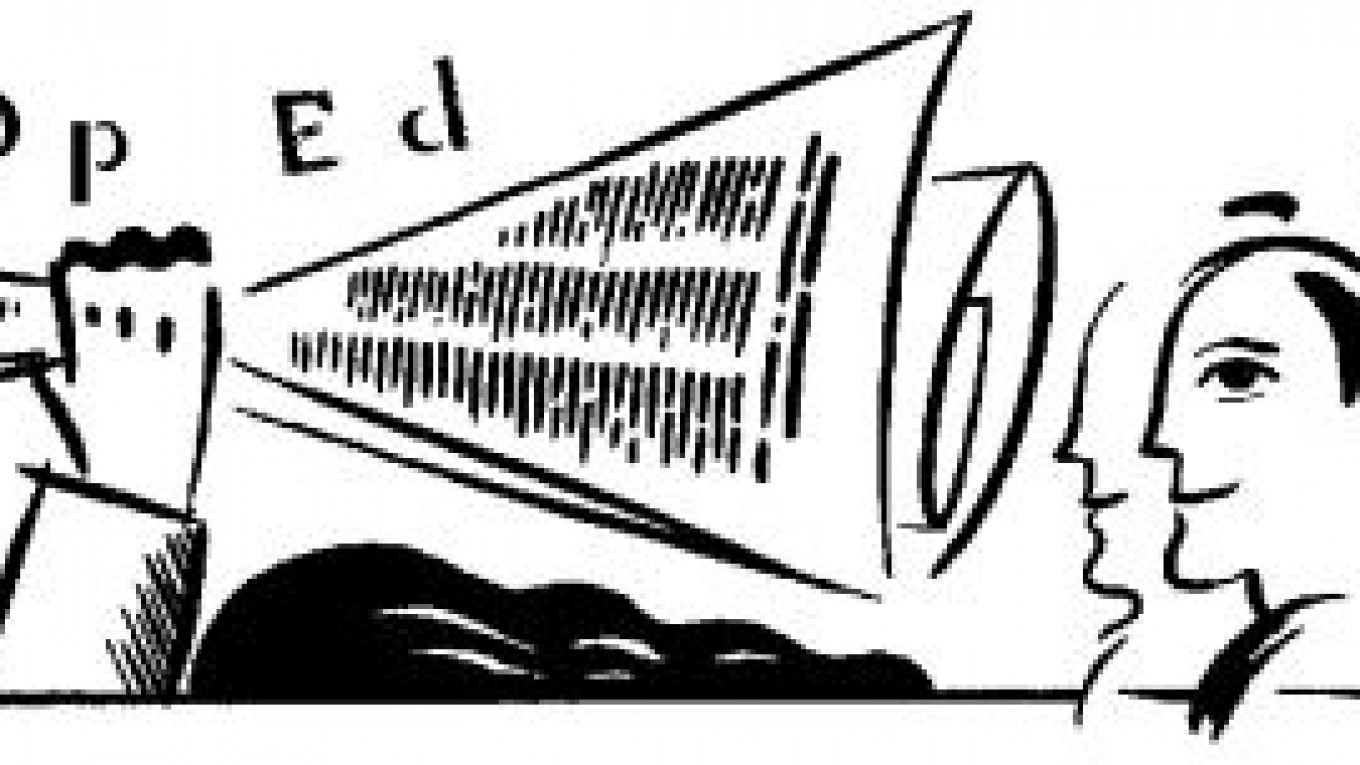In his second inaugural address on Jan. 21, U.S. President Barack Obama said, "We will support democracy from Asia to Africa, from the Americas to the Middle East." Hearing this, I drew lines between those points on a map and saw that the territory mentioned did not include Russia. Does that mean that the Obama administration will continue its past approach of minimizing its public criticism of Moscow for violating democratic freedoms and human rights?
That was the foundation of Obama's "reset" so that he could avoid lecturing Russia on democracy as two U.S. presidents before him had done. Instead, he chose to focus on practical questions of common interest to both countries: the reduction of nuclear arsenals, deterring Iranian and North Korean nuclear ambitions and the transit of military hardware into and out of Afghanistan.
But a closer look at the results of that policy indicates that the reset has been an utter failure.
Russia signed the New START with the U.S. on terms very favorable to itself. Russia was finally admitted into the World Trade Organization, in large part because of the support of the U.S. Meanwhile, Russia is developing the Eurasian Union, a customs union with Belarus and Kazakhstan in a bid to partially rebuild the former Soviet empire. Moscow is also working to re-establish its sphere of influence in Georgia and Ukraine. Notably, the U.S. has not resisted or tried to stop these moves.
Although the missile threat from rogue states remains a very real problem, Obama failed to make progress on that front. Instead, he proposed a scaled-down missile defense system in Europe. That was widely viewed as a concession to Kremlin concerns that the previous system, which was supposed to be based in Poland and the Czech Republic, presented a threat to Russia. In essence, Washington adopted an appeasement policy toward Moscow. And what gratitude did it get in return? Nothing. Because as President Vladimir Putin once explained at a news conference, the weak get beaten up.
Throughout Obama's first term, perhaps the only concession Russia made to the U.S. was its abstention from the UN Security Council resolution regarding Libya. But even that move was not so much a gesture to Washington as it was an opportunity to stage a "public disagreement" over Libya between Putin and then-President Dmitry Medvedev to create the impression that the tandem members can have different views on important issues. Yet when Moscow supported Syrian President Bashar Assad in 2012 during Syria's civil war, it greatly complicated matters for Washington and its allies. Russia has also tried to obstruct the West's attempts to enact strict sanctions against Tehran, despite occasional public statements to the contrary.
Now, Obama begins his second term at a time when Russia's wave of anti-U.S. fervor has reached heights perhaps not seen in the country since the reign of Josef Stalin. Moscow leaders waged a campaign to harass and belittle U.S. Ambassador Michael McFaul by constantly claiming that he and the U.S. administration were orchestrating the opposition movement in Russia. And soon after his re-election, Putin defiantly refused to take part in the Group of Eight summit at Camp David.
Russia further humiliated the U.S. by kicking USAID out of the country last fall, a bitter pill that Washington, surprisingly, seemed to swallow silently, which illustrates the extent to which the U.S. wants to avoid an open diplomatic conflict with Russia.
Finally, Russia fired back at the U.S. with its "anti-Magnitsky" law. For the Kremlin, anti-U.S. propaganda is just a way to consolidate loyal voters who suffer from an inferiority complex and the old Russian disease of xenophobia. At the same time, however, the same politicians who scream the loudest about the U.S. threat have no qualms about sending their children to study, vacation and shop in the U.S. After so many years of anti-Americanism, I thought this propaganda tool had been exhausted, but I was wrong.
What comes next in 2013? In all likelihood, nothing good. Not only must Obama cope with all these failures in his Russia policy, but now he must also deal with Putin, who has never been very fond of him. In Obama's first term, he had the luxury of dealing with the softer Medvedev. In fact, this is part of the problem in the Obama-Putin relationship. It seems that Putin resented the fact that Obama treated Medvedev as the real president during Obama's first term and treated Putin as the less-important prime minister.
After a failed reset, Obama lacks any serious leverage with Russia. That might change if oil prices drop and the U.S. becomes more self-reliant in terms of oil and gas, but for now it is not in Washington's interests to take a harder line on Russia.
What's more, Obama does not want to pursue an aggressive foreign policy. He is clearly more interested in implementing his liberal social programs in the U.S. to "focus on nation-building at home." It will come as no surprise if that course leads to a weakening of Washington's international influence, and not only with regard to Russia.
In particular, as the U.S. completes its troop withdrawal from Afghanistan by 2014, as Obama has promised, the Taliban could seize power in the country. That would inevitably change the balance of power in the region in favor of Islamic fundamentalists. If the Taliban gain control in Pakistan, a large country with nuclear weapons, that development would threaten not only neighboring India, a strong U.S. ally, but also the international security in all of South Asia.
Meanwhile, it is unlikely that the Obama administration wants to actively oppose the growing economic and military power of China, even as it becomes an increasing concern for Japan, South Korea and other U.S. allies in the region. It seems that the current U.S. administration is approaching China with the same indifference it displayed during Obama's first term toward Israel, one of Washington's longtime strategic partners.
Former U.S. President Ronald Reagan was perhaps the last leader in Washington to truly and deeply believe that international security was impossible without respect for freedom, democracy and human rights. But under the Obama administration — and perhaps far beyond — those days are gone.
As a result, Russian human rights activists and the opposition movement will have to part with their last illusion that the U.S. will always be there to support them in their bid for freedom and justice. They will have to fight for democracy on their own.
Yevgeny Kiselyov is a political analyst and television journalist.
Related articles:
A Message from The Moscow Times:
Dear readers,
We are facing unprecedented challenges. Russia's Prosecutor General's Office has designated The Moscow Times as an "undesirable" organization, criminalizing our work and putting our staff at risk of prosecution. This follows our earlier unjust labeling as a "foreign agent."
These actions are direct attempts to silence independent journalism in Russia. The authorities claim our work "discredits the decisions of the Russian leadership." We see things differently: we strive to provide accurate, unbiased reporting on Russia.
We, the journalists of The Moscow Times, refuse to be silenced. But to continue our work, we need your help.
Your support, no matter how small, makes a world of difference. If you can, please support us monthly starting from just $2. It's quick to set up, and every contribution makes a significant impact.
By supporting The Moscow Times, you're defending open, independent journalism in the face of repression. Thank you for standing with us.
Remind me later.







